10 May Remote Working Fatigue & How To Reduce & Manage It
Before March 2020, many of us viewed working from home as something reserved for cutting-edge tech companies, or a ‘treat’ bestowed upon us all too infrequently. We imagined a life free from the daily commute, office politics and eating lunch at our desks, and it sounded perfect. Then COVID-19 arrived and, virtually overnight, our imaginings came true.
A year later, the shine of remote working has dulled for many people. What gave us a surge of energy during the first lockdown became more of a strain during the subsequent two. Baking bread in April 2020 has been replaced with a sense of anxiety in 2021.
So, what happened to our expected pleasure of remote working, and why has it left so many of us feeling drained?
The truth is, when dreaming of remote working, none of us imagined doing it during a global pandemic. The term ‘remote working fatigue’ has become a buzz phrase over recent months and, despite not being an actual clinical diagnosis, it’s something that many of us are experiencing first-hand.
Working remotely, during a global health crisis, is tough. Routines have been overturned, relationships have been tested, families have been separated, children have been home-schooled, switching off from work has become harder, sleep patterns have altered, life as we knew it has been impacted and changed on every possible level. Added to this, we have all endured a year-long cycle of uncertainty. Remote working, when everything else is uncertain and difficult, has compounded our loss of structure and added a new layer of intensity for many employees.
Essentially another name for burnout, business leaders would be wise to consider the impact remote working fatigue is having on some of their workforce. Employees may be feeling exhausted, lacking focus or experiencing a lower level of motivation than before. Coupled with this, a potential return to the office – even if a hybrid pattern is to be the new norm – could also be adding stress and anxiety.
We’ve compiled a few tips on how both employers and employees can reduce remote working fatigue:
1: Reduce the amount of video meetings and make some of them audio only. The pressure of being constantly ‘viewed’ can be daunting for many people. If a video catch-up or simple question can be replaced by an email, then do it. It could also be useful to switch off the webcam and hold a few meetings as audio only, allowing participants to move around and feel less pressured. If the video meeting is absolutely necessary, then shorten it to less than an hour to give attendees the chance of have a quick break before the next one.
2: Less screen time should be a target for everyone, not just children. Sitting in front of your computer all day is not good for anyone. Without the daily commute or the interruptions of co-workers, many remote workers remain fixed in front of their screens. A five-minute screen break every hour should be the aim, and used to stretch, walk and get a drink. It’s important for eyes, posture and overall physical and mental wellbeing.
3: Get outside. Remote working should not mean consuming lunch at your desk, anymore than office working should. Use the lunch hour to take a break, and ideally to step outside for some fresh air. A change of pace and perspective is vital for good mental health.
4: Work from home has evolved to work from anywhere. If it’s not a video meeting, you’re not an active participant on a call, and the sun is shining, take your phone outside and work there for ten minutes. Vitamin D is nature’s boost for the immune system.
5: Know when to switch off. Remote working fatigue is real and, if left unchecked, could lead to complete burnout. The ease of worker longer days at home, filling the previously wasted hours of commuting with meetings and report-writing, should be avoided. Taking time away from work, staying active, and connecting with family and friends is crucial for a healthy work/life balance.
If you’d like further advice on how to ease remote working fatigue for your workforce, please contact us.
 Remote Support
Remote Support

